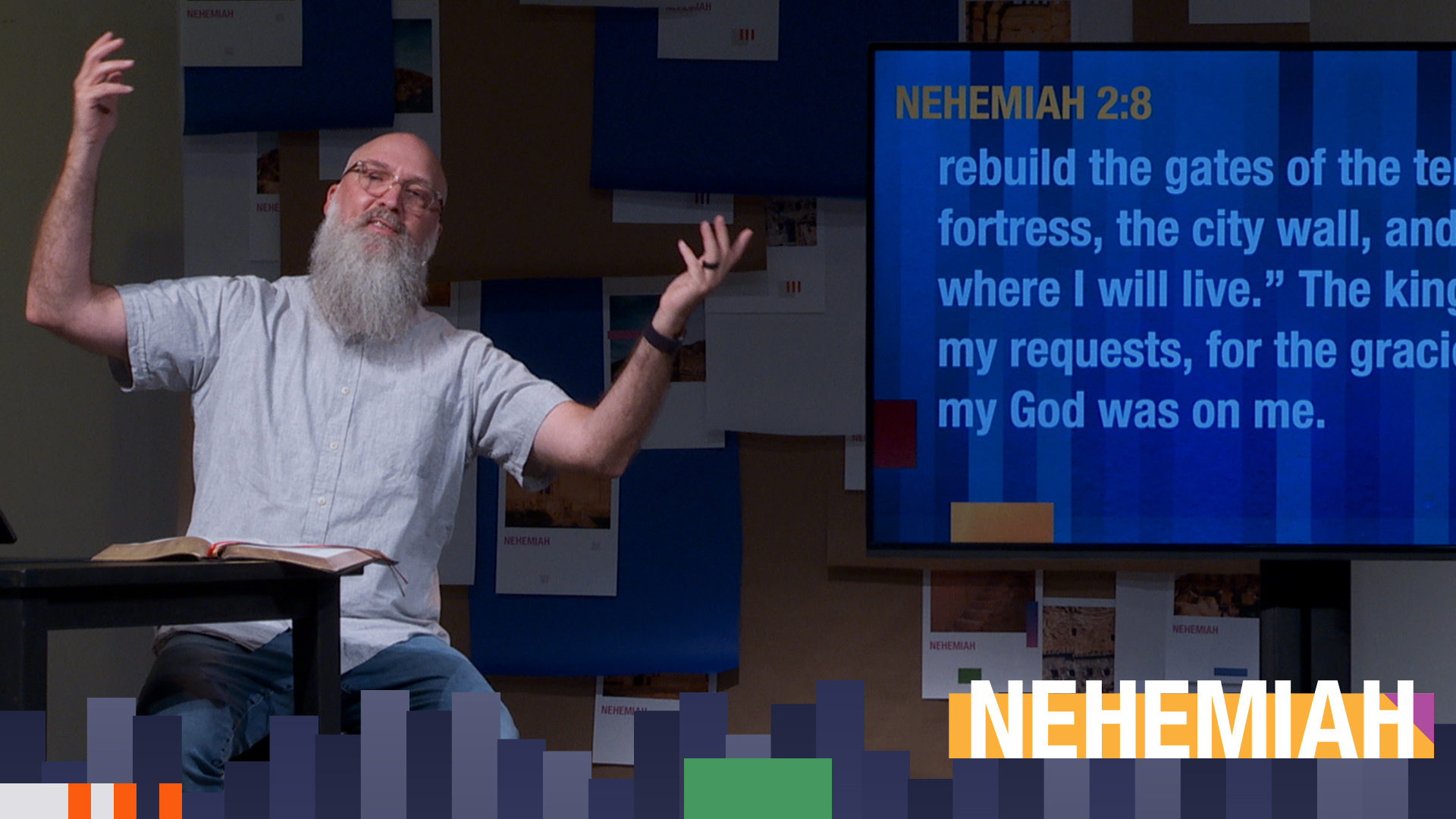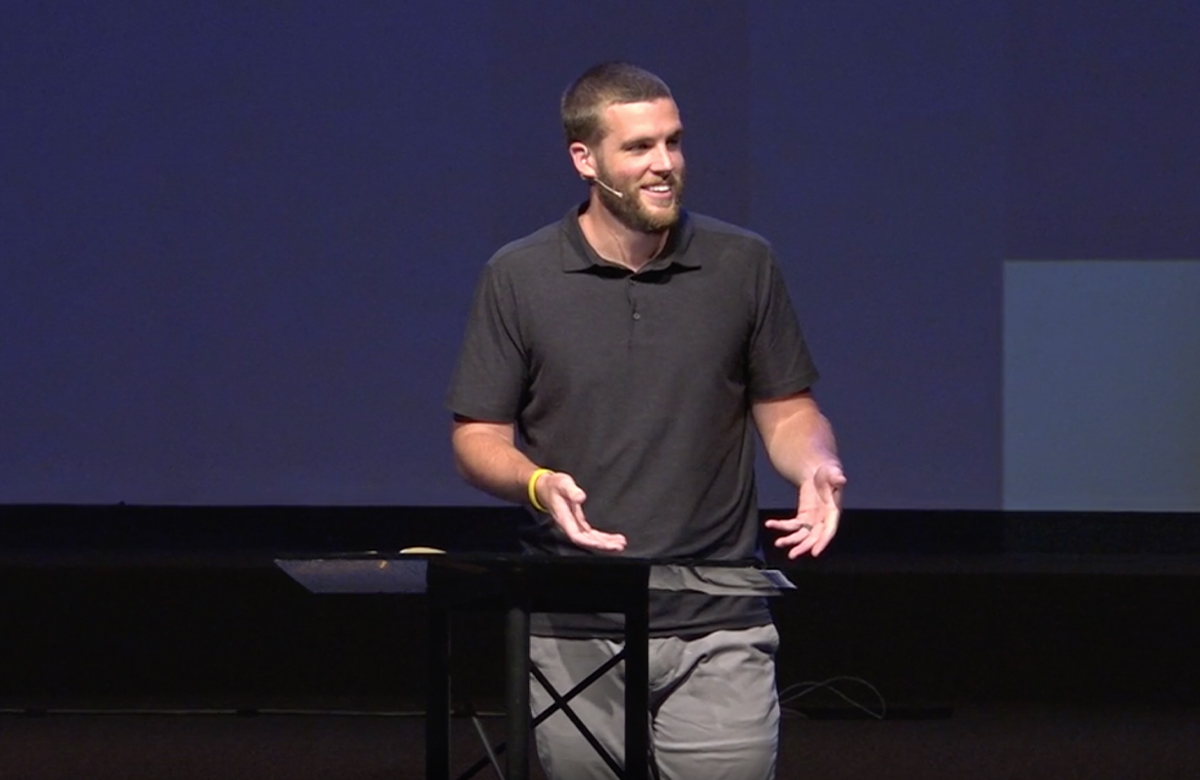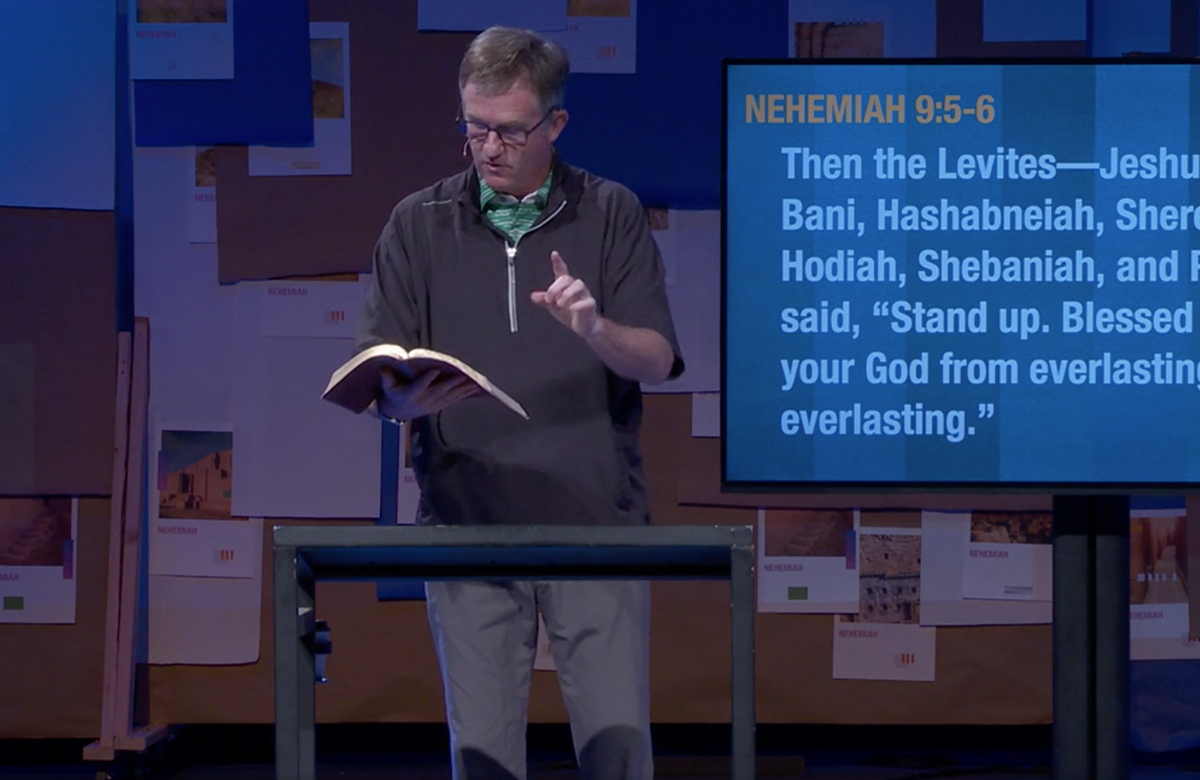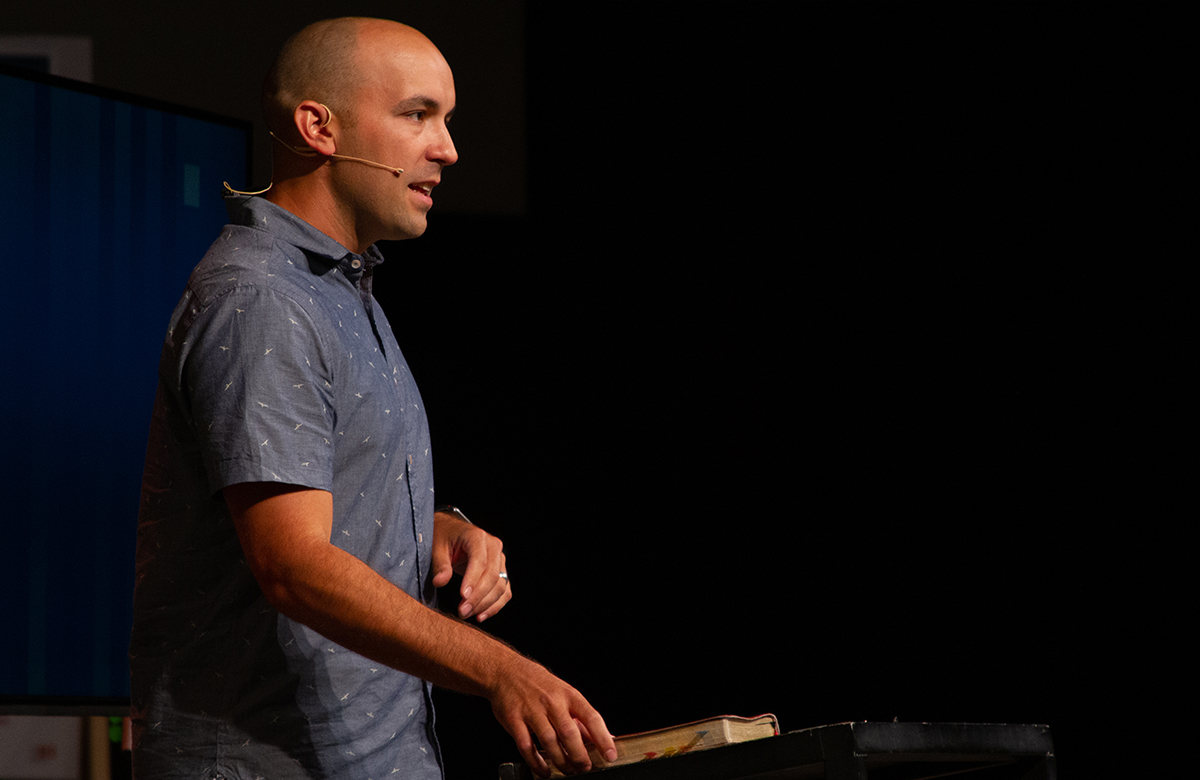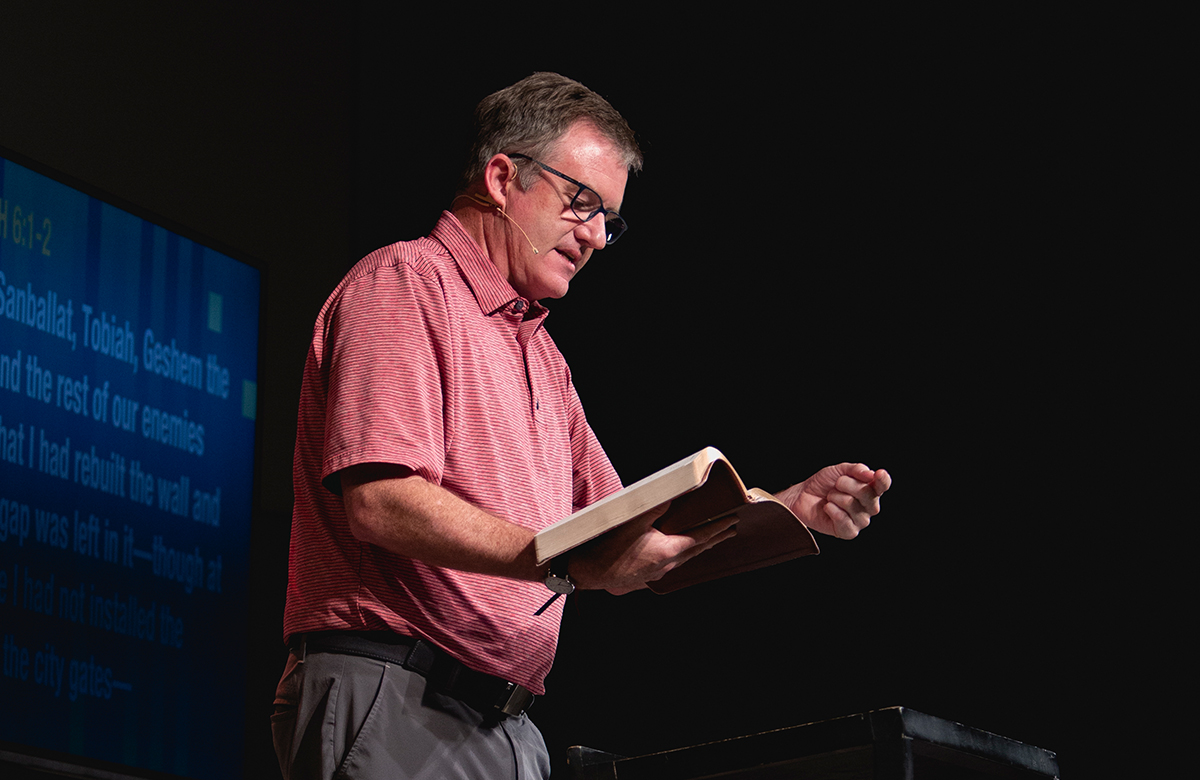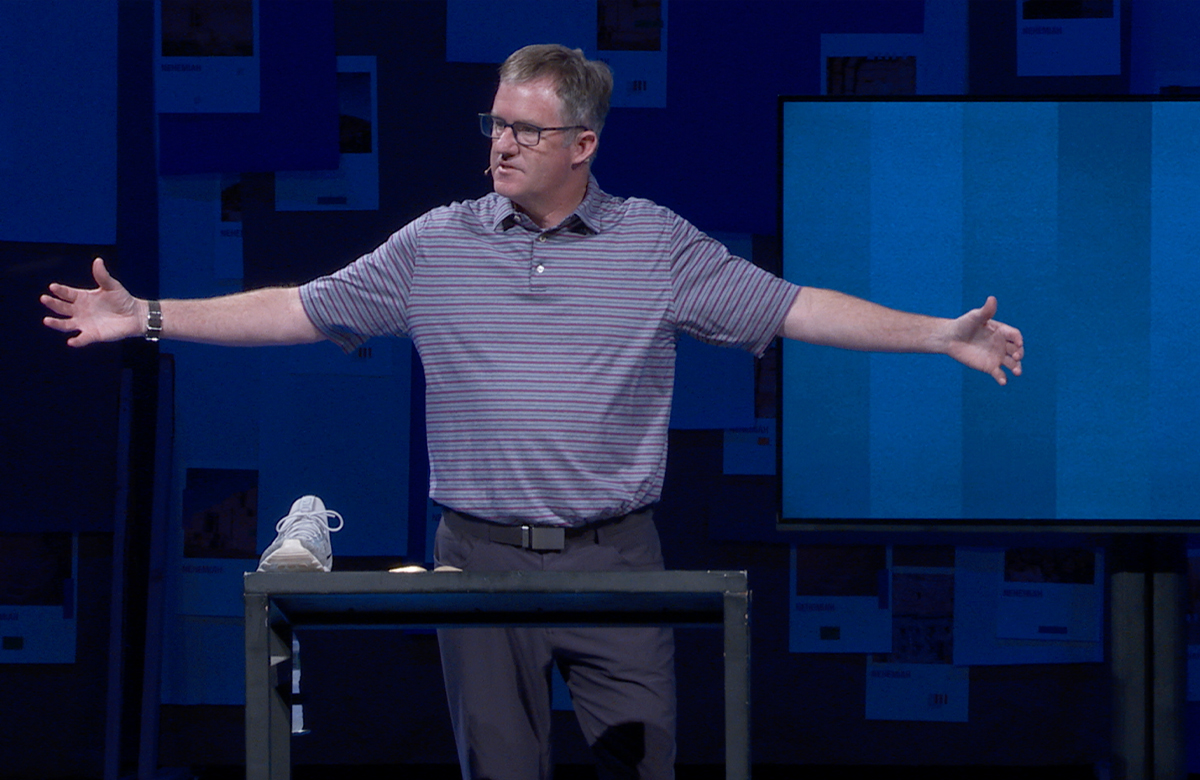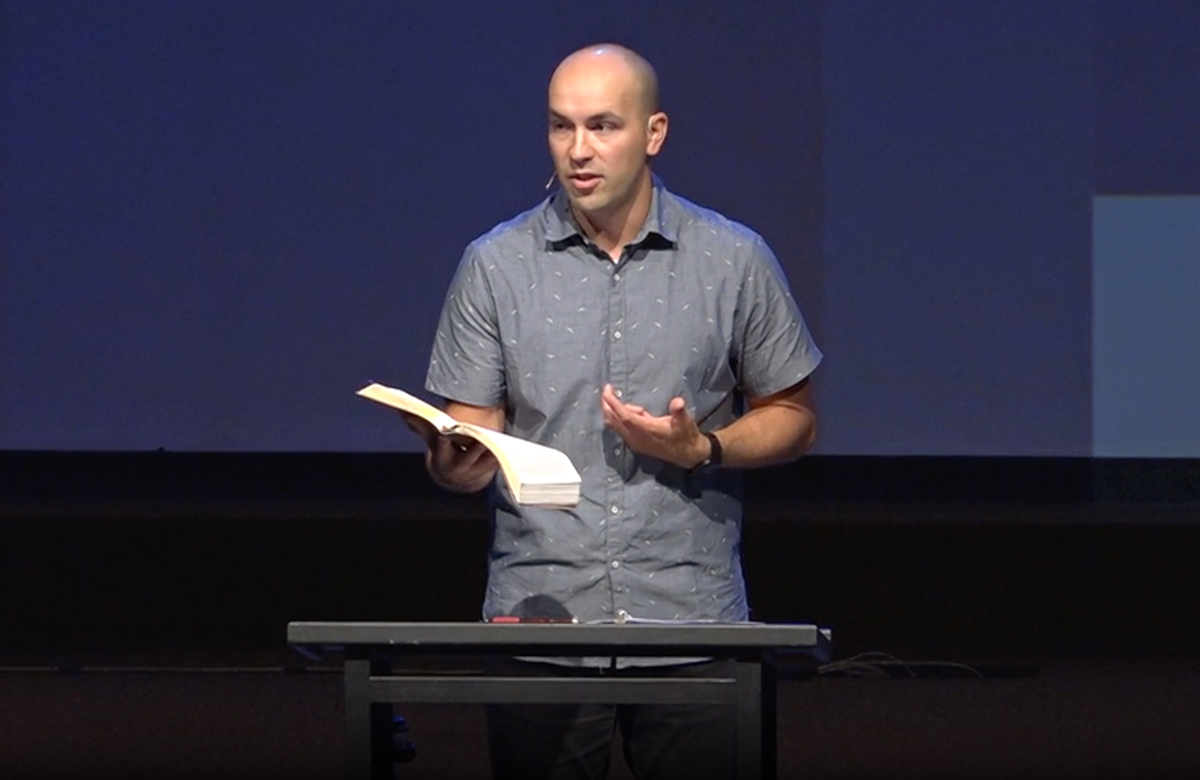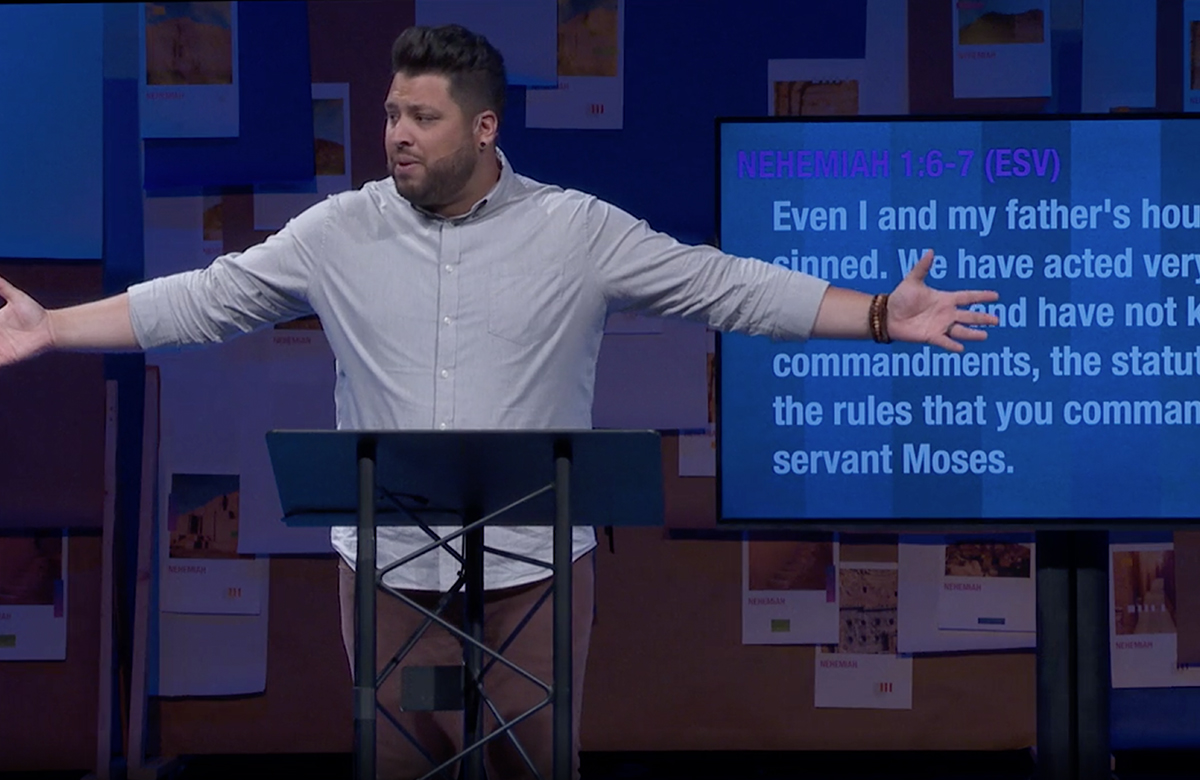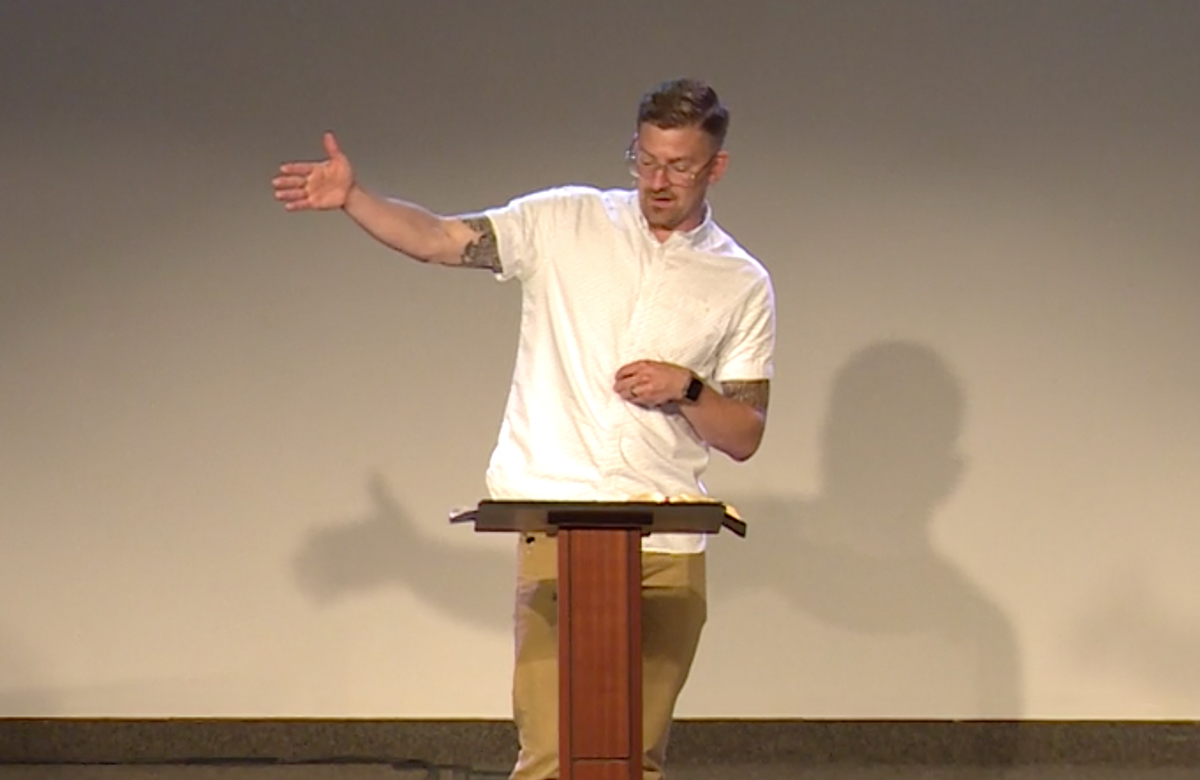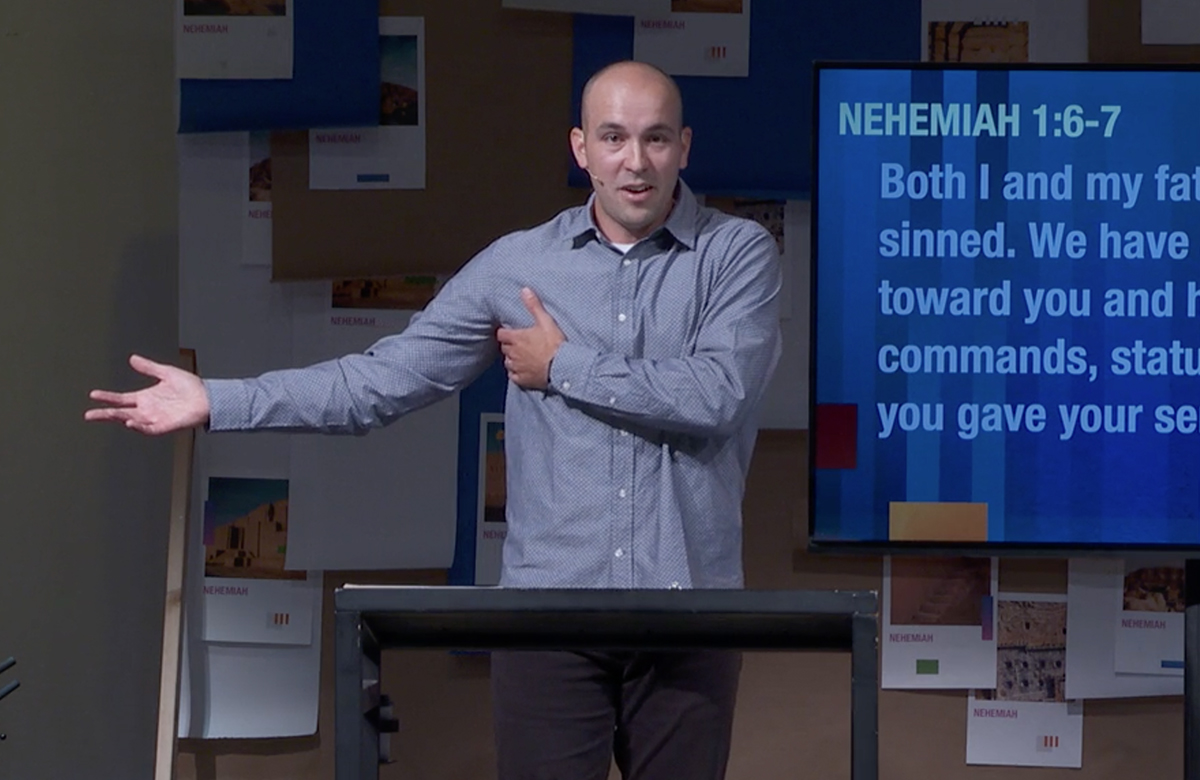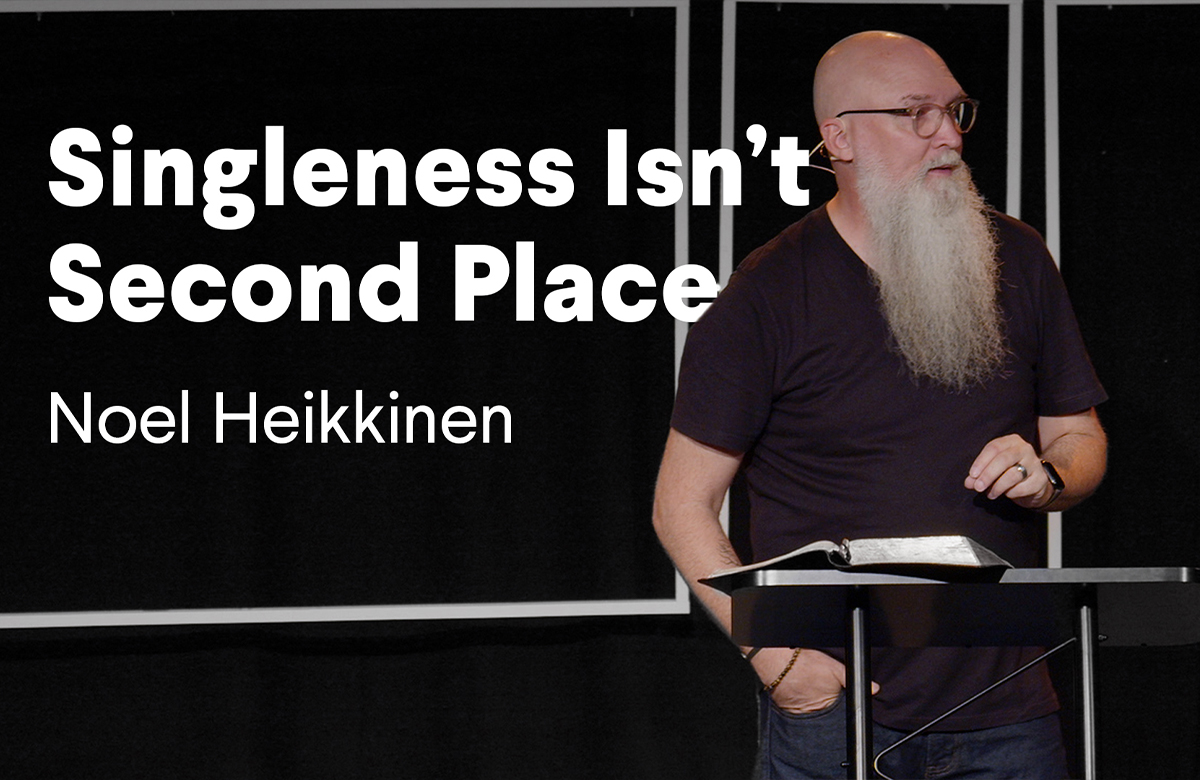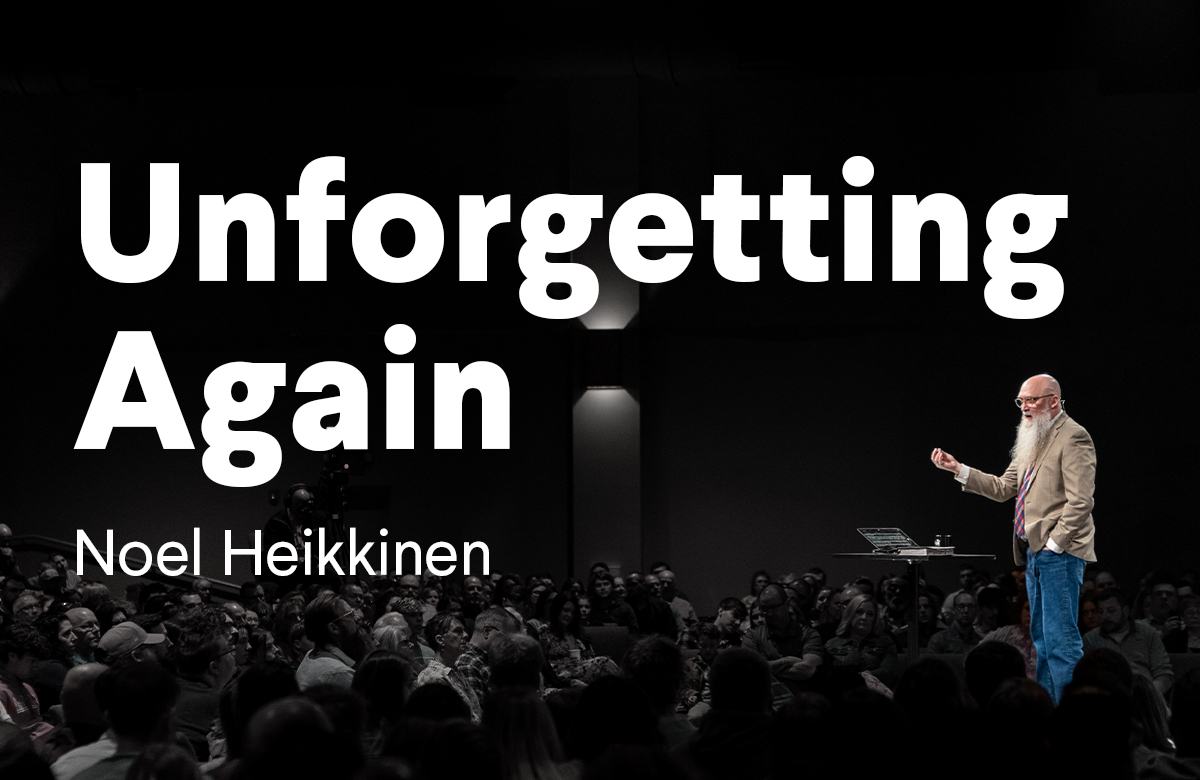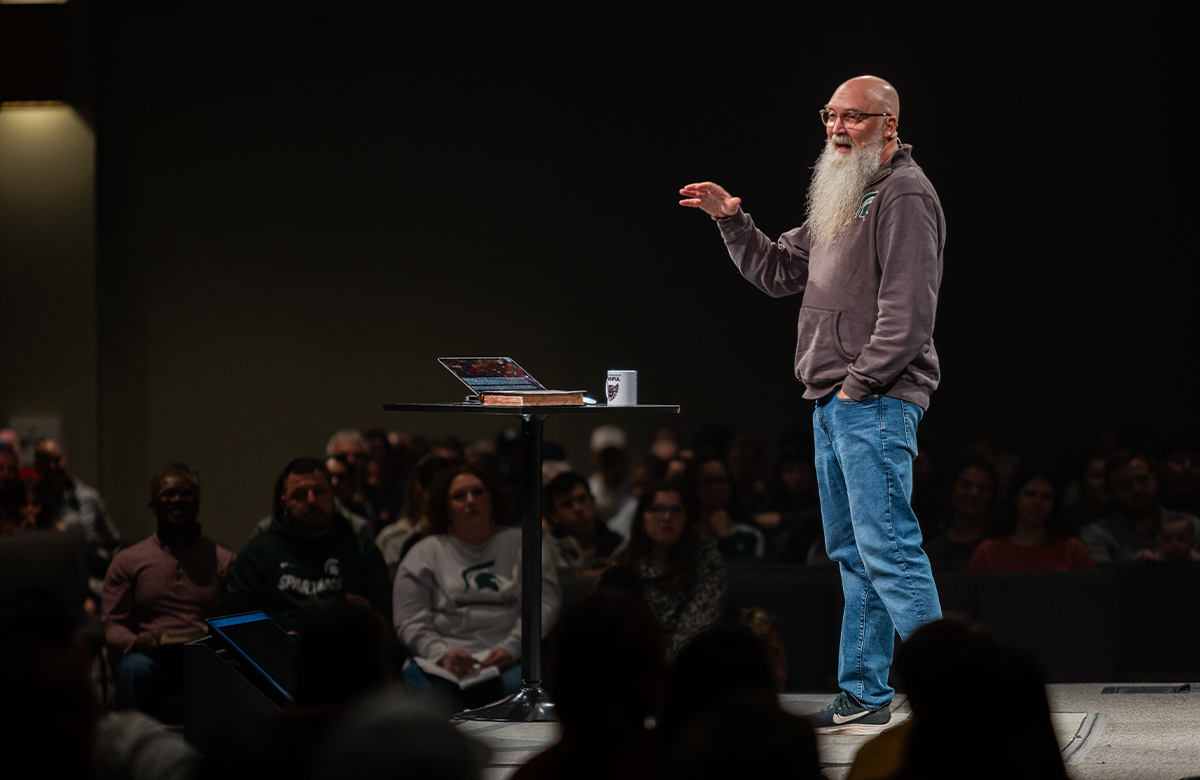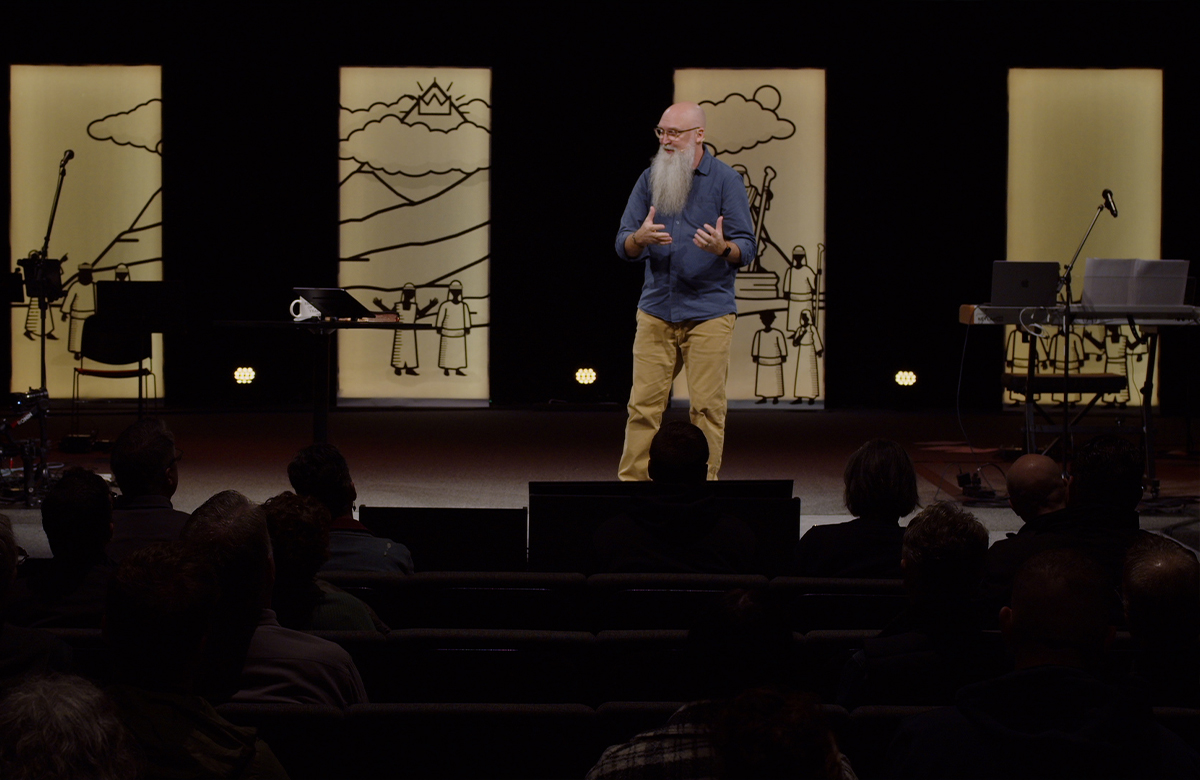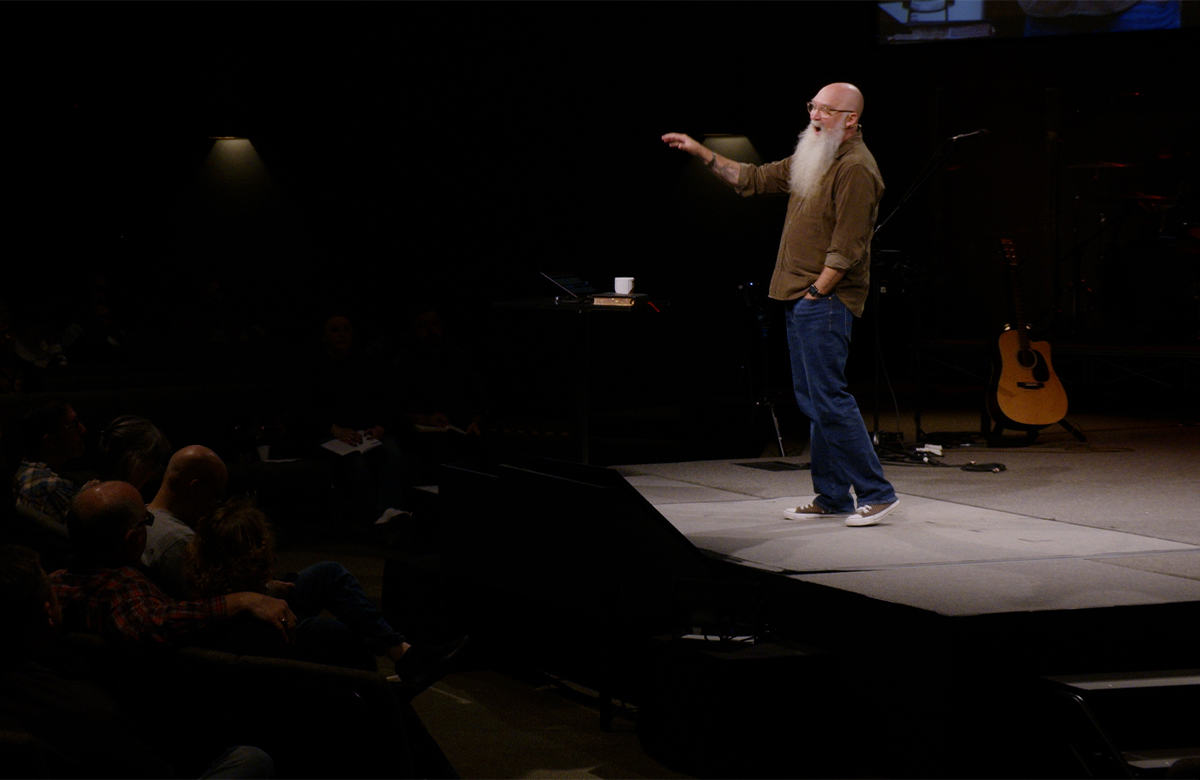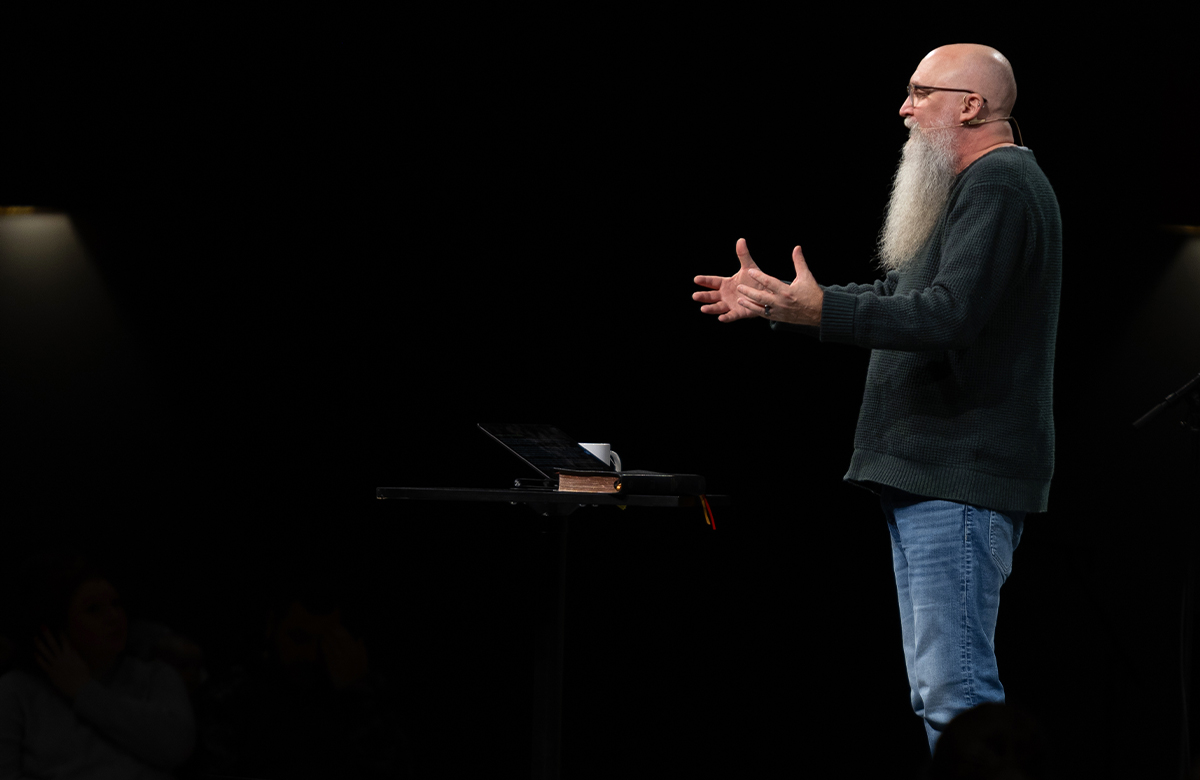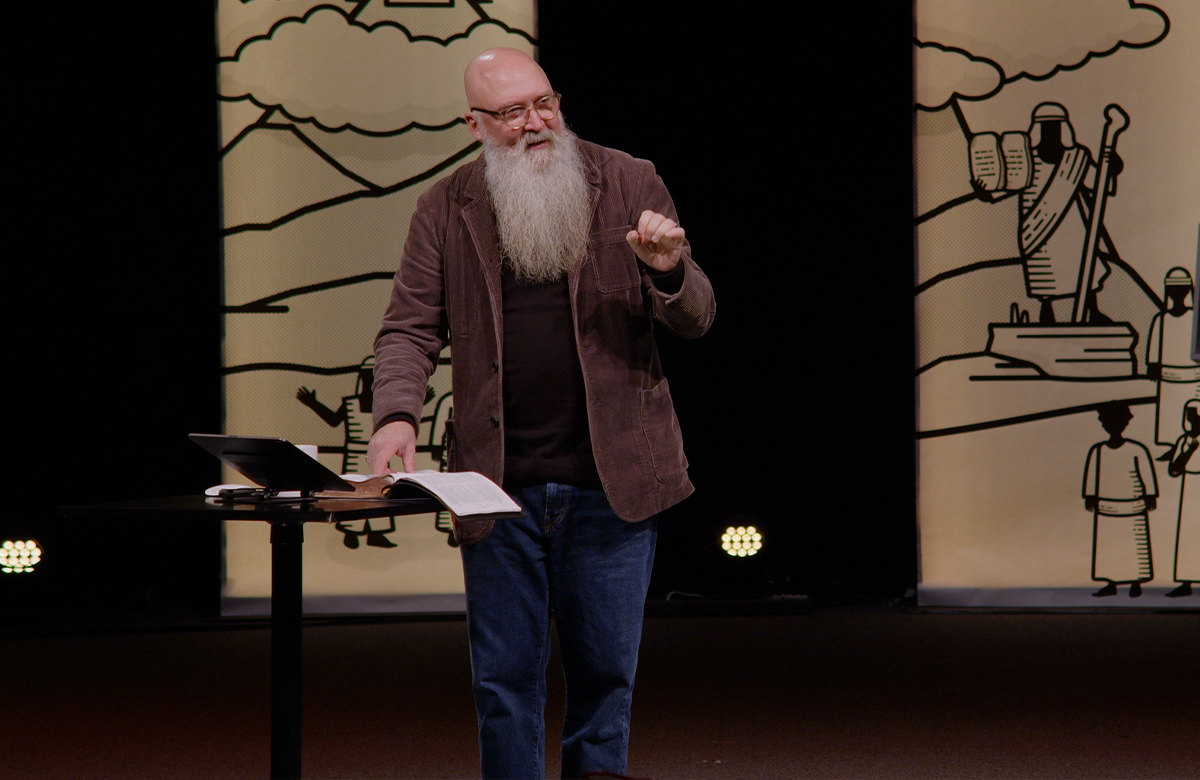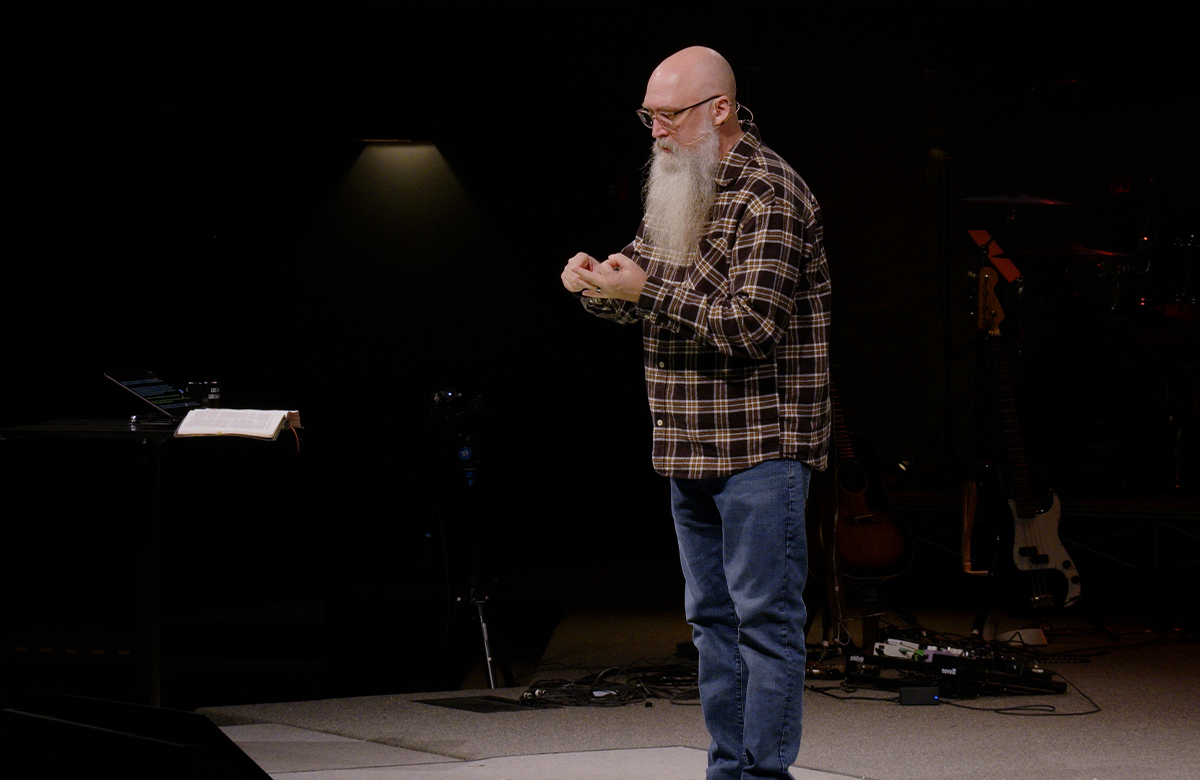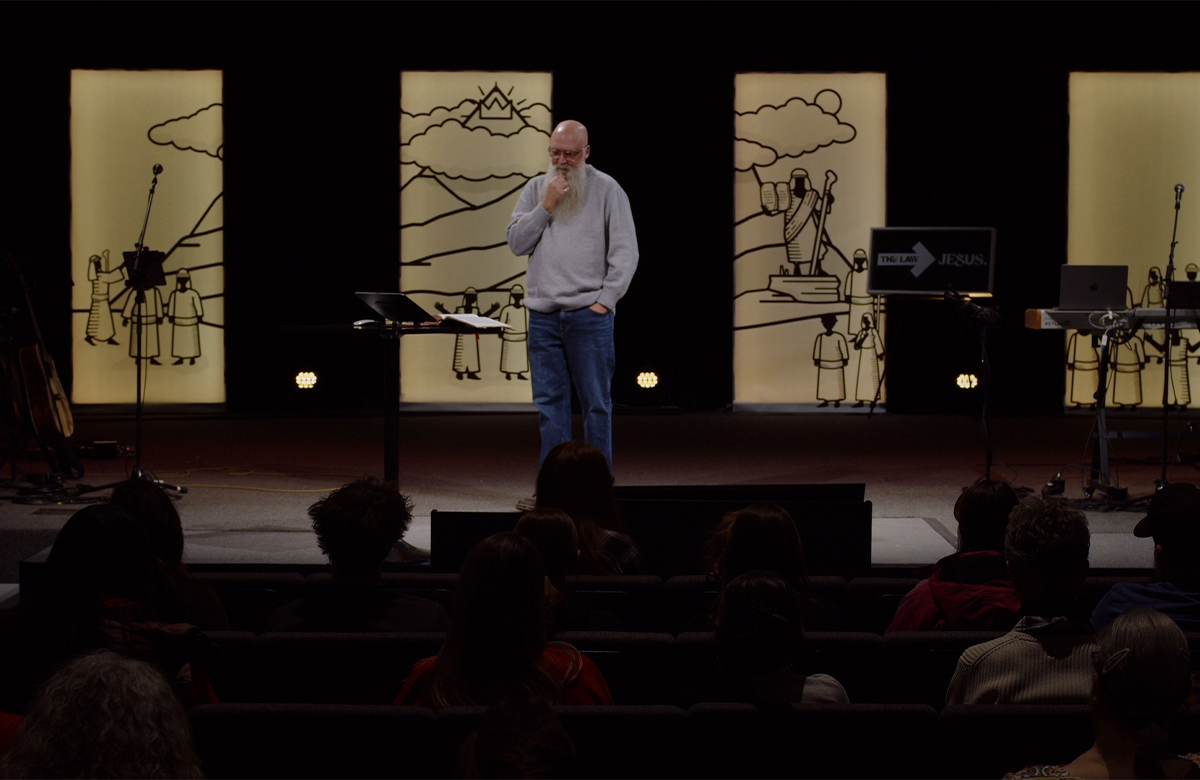06.13.21 | Nehemiah
A Well Prayed Plan
Noel Heikkinen
Nehemiah 2
So many of us find ourselves displaced or uncertain about what our next steps are in life. Do you bring your plans to God in prayer? Pastor Noel Jesse Heikkinen points out that Nehemiah spent time both in prayer and in planning as he set out to rebuild Jerusalem. We can look to that example as we go through life to both pray and plan, and remember that our singular goal, even through our planning, is to make known God’s great power and redemption.
- Live Notes
- Life Groups
At the time, I was the king’s cupbearer.
Nehemiah 1:11
During the month of Nisan in the twentieth year of King Artaxerxes, when wine was set before him, I took the wine and gave it to the king. I had never been sad in his presence, so the king said to me, “Why do you look so sad, when you aren’t sick? This is nothing but sadness of heart.” I was overwhelmed with fear
Nehemiah 2.1-2
and replied to the king, “May the king live forever! Why should I not be sad when the city where my ancestors are buried lies in ruins and its gates have been destroyed by fire?”
Nehemiah 2.3
Then the king asked me, “What is your request?” So I prayed to the God of the heavens and answered the king, “If it pleases the king, and if your servant has found favor with you, send me to Judah and to the city where my ancestors are buried, so that I may rebuild it.”
Nehemiah 2.4-5
The king, with the queen seated beside him, asked me, “How long will your journey take, and when will you return?” So I gave him a definite time, and it pleased the king to send me.
Nehemiah 2.4-5
rebuild the gates of the temple’s fortress, the city wall, and the home where I will live.” The king granted my requests, for the gracious hand of my God was on me.
Nehemiah 2.8
The officials did not know where I had gone or what I was doing, for I had not yet told the Jews, priests, nobles, officials, or the rest of those who would be doing the work.
Nehemiah 2.16
So I said to them, “You see the trouble we are in. Jerusalem lies in ruins and its gates have been burned. Come, let’s rebuild Jerusalem’s wall, so that we will no longer be a disgrace.” I told them how the gracious hand of my God had been on me, and what the king had said to me. They said, “Let’s start rebuilding,” and their hands were strengthened to do this good work.
Nehemiah 2.17-18
When Sanballat the Horonite, Tobiah the Ammonite official, and Geshem the Arab heard about this, they mocked and despised us, and said, “What is this you’re doing? Are you rebelling against the king?” I gave them this reply, “The God of the heavens is the one who will grant us success. We, his servants, will start building, but you have no share, right, or historic claim in Jerusalem.”
Nehemiah 2.19-20
They are your servants and your people. You redeemed them by your great power and strong hand. Please, Lord, let your ear be attentive to the prayer of your servant and to that of your servants who delight to revere your name. Give your servant success today, and grant him compassion in the presence of this man. At the time, I was the king’s cupbearer.
Nehemiah 1:10-11
How are you doing? How have the past 16 months been for you? What are the one or two words that best describe your heart today?
In Nehemiah 2:4 Nehemiah prays in the immediacy of the moment. What are some specific ways you can grow in the practice of “praying to the God of heaven” in the moment by moment interactions in your life?
In Nehemiah 2:7-8 and again in verses 2:13-15 Nehemiah shows us an example of the value of prayerful and detailed planning. What are some of the building plans in your life? For your family? What are the details? How can you make sure prayer is embedded in your planning process?
How do you tend to respond when you face adversity or adversaries? In Nehemiah 2:10 and again in Nehemiah 2:19 we see that Nehemiah faced opposition to his plan. How did he respond (see Neh 2:11 and Neh 2:20)?
Twice in Nehemiah 2 (see v. 4 and v. 20) Nehemiah uses the phrase “the God of heaven.” Why do you think he refers to God this way? How can you follow his example?
- More From This Series
- More From This Speaker



























